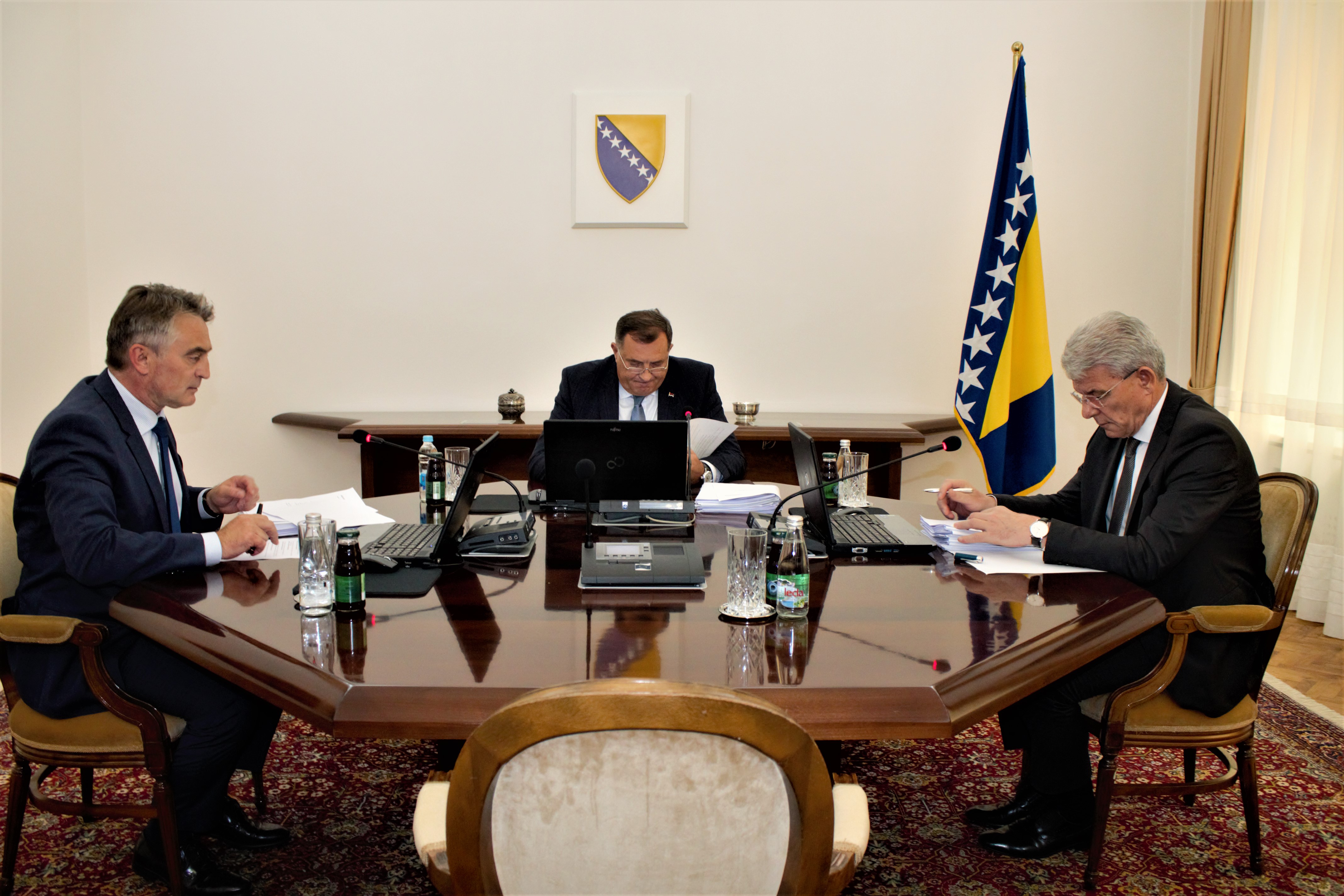
The decision to sue Croatia over the construction of the Peljesac Bridge is “part of the Bosniak political agenda aimed at creating poor political relations with neighbours,” said House of Representatives member Predrag Kozul from the Croat Democratic Union (HDZ) on Wednesday.
Croatia is building the Peljesac Bridge to link its territory that is disconnected by a small strip of the Adriatic coast that belongs to Bosnia and Herzegovina.
The bridge will connect the Croatian mainland and the Peljesac Peninsula, bypassing a 15 kilometre-long Bosnian strip around the city of Neum that is located in the bay of the peninsula.
Bosniak political parties oppose the construction of the bridge, saying it might prevent large vessels from entering the country’s bay of Neum and threaten its access to the open sea.
When the Bosniak and Croat members of the country’s tripartite Presidency agreed to adopt a proposal that could mean that Bosnia could submit a lawsuit against Croatia over the issue, the Serb Presidency member, Milorad Dodik, said he would not approve the move.
He said he would use the vital entity interest card which would mean that the parliament of Republika Srpska (RS), the Serb-dominated semi-autonomous entity within the country, would declare a lawsuit against neighboring Croatia harmful for Serb interests in Bosnia.
The vital entity interest mechanism means that Dodik could veto the decision to sue Croatia if two-thirds of the lawmakers in the RS support it. Dodik is the leader of the ruling party in the RS.
Dodik’s party and the HDZ have before the October election last year entered a political alliance.
"It is indicative that such an unnecessary and detrimental decision is made at the time of a political crisis and the inability to make key decisions for Bosnia and Herzegovina, as well as at a time of serious joint transport projects with Croatia," Kozul told Srna, referring to the initiative to build bridges on the Sava near Silk and Gradiska.
He said that political representatives of Croats in Bosnia had emphasized several times that a proper expert agreement regarding the construction of the Peljesac Bridge was reached between Croatia and Bosnia, and that the project is beneficial to both countries.
He said that the decision is banal and unnecessary and will not particularly disturb anyone outside of Sarajevo.
The decision was made by people who “are not doing anything” and that “if they will not or can not do their job, that is to form a government in Bosnia, they deal with others' affairs - the Peljesac Bridge,” Kozul said, referring to the deadlock in forming the government since the October 2018 General Election.
"It is good that at least one member of Bosnia’s Presidency recognised it," Kozul said, referring to Dodik and saying that he was “outvoted.”
Zeljko Komsic, the left-leaning Bosnian Croat Presidency member, said Dodik did not read the conclusion regarding the lawsuit well.
He clarified that the lawsuit is about the demarcation of the border with Croatia and that the construction of the bridge a secondary issue.
He also questioned Dodik’s motives for playing the vital interest card on an issue that has nothing to do with Serb interests as the bridge or the part of the disputed border are nowhere near the Bosnian Serb territory.
He called the idea of violations of Serb interests in this case “absurd,” suggesting that “someone over there has some personal interests he wants to portray as national."
Kakvo je tvoje mišljenje o ovome?
Učestvuj u diskusiji ili pročitaj komentare





 Srbija
Srbija
 Hrvatska
Hrvatska
 Slovenija
Slovenija



























































